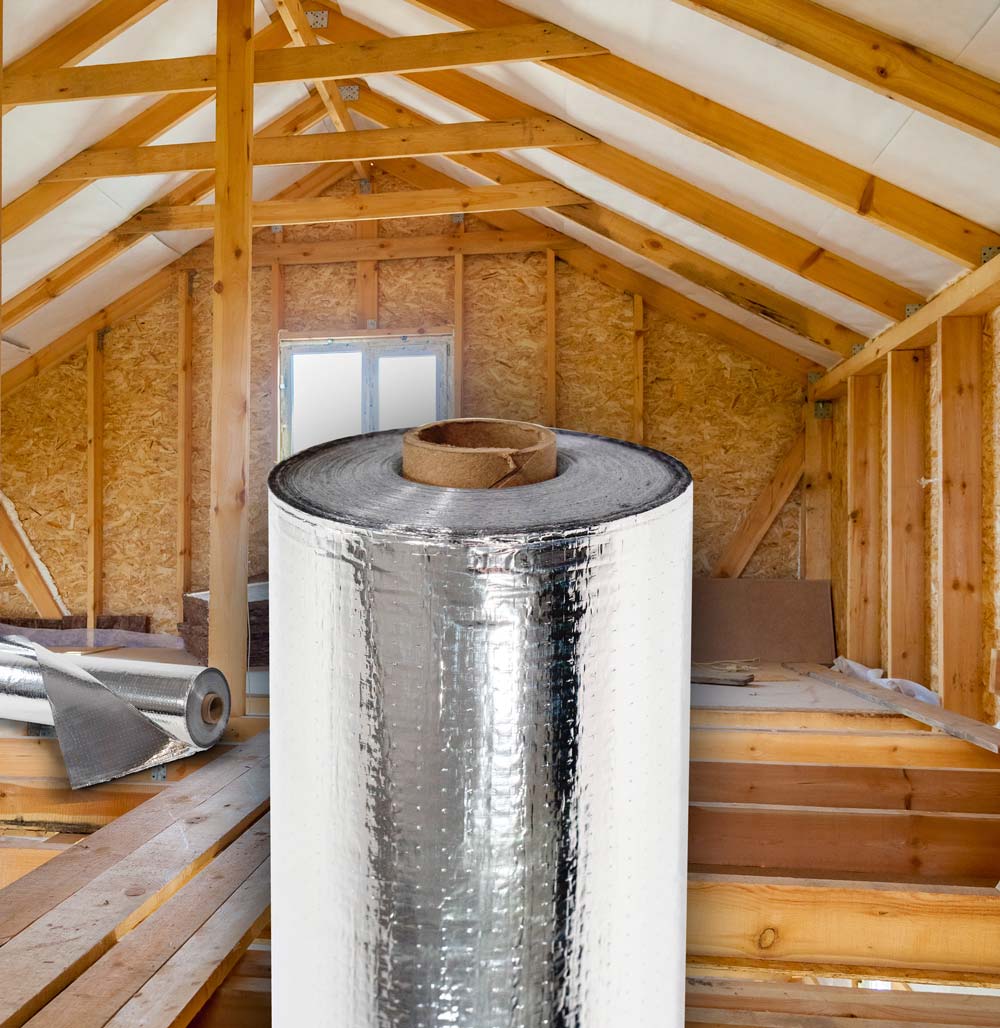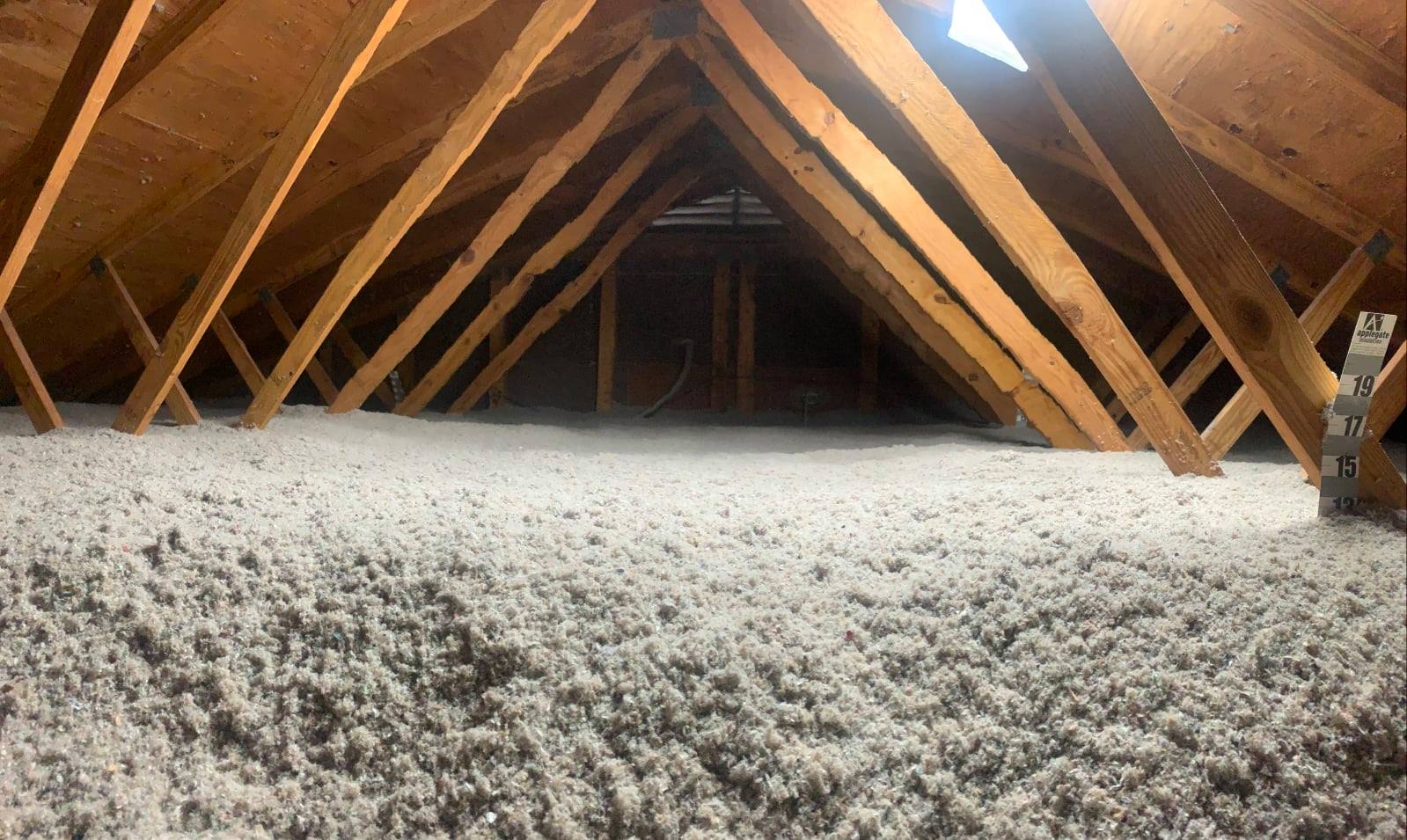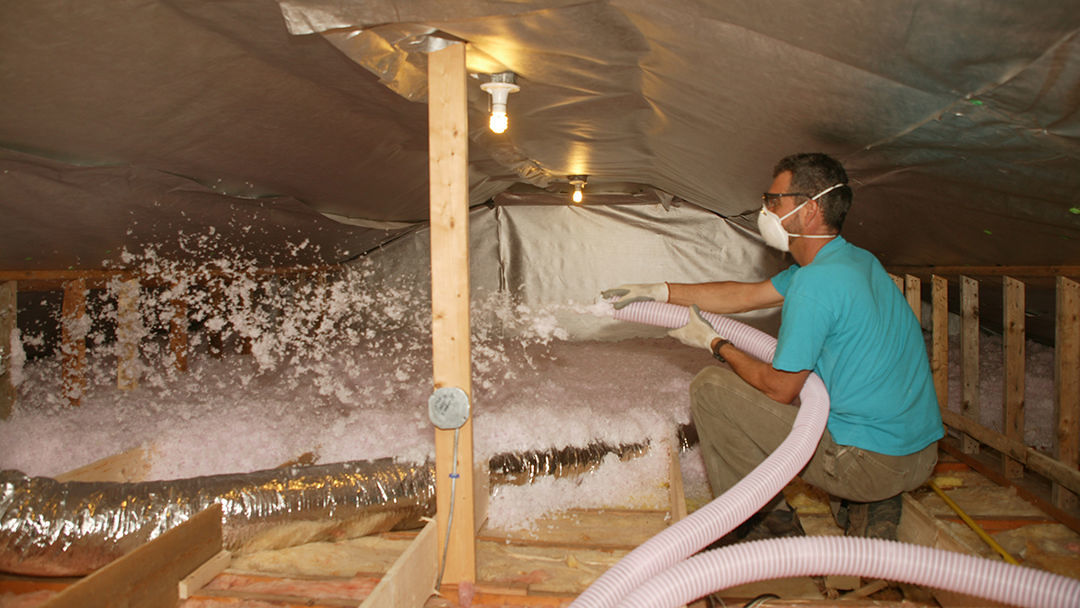Discover the Different Sorts Of Attic Insulation and Their Distinct Advantages for Your Home's Energy Performance

Fiberglass Insulation
Fiberglass insulation is among the most frequently used materials for attic room insulation due to its superb thermal performance and cost-effectiveness. Composed of little glass fibers, this material successfully traps air, producing a shielding barrier that assists maintain constant interior temperatures. Its high R-value per inch makes it specifically efficient at standing up to heat transfer, which is important for energy preservation in homes.
Setup of fiberglass insulation is fairly straightforward, commonly available in batts or loose-fill forms, fitting different attic room arrangements. Additionally, it is non-combustible and resistant to dampness, lowering the risk of mold advancement. This toughness adds to its longevity, making fiberglass a viable long-term investment for house owners.
In addition, fiberglass insulation is typically made from recycled materials, which enhances its eco-friendliness. The material can additionally add to soundproofing, minimizing noise transfer between rooms. While it is necessary to use safety equipment during setup to stay clear of irritability from the fibers, the total advantages of fiberglass insulation, consisting of power financial savings and ecological factors to consider, make it a prominent option for improving attic performance and advertising a comfy living atmosphere.
Spray Foam Insulation
Spray foam insulation is a highly effective alternative for attic room insulation, recognized for its premium air securing and thermal efficiency. This ingenious insulation material is made up of a blend of isocyanate and polyol material, which, when integrated, increases quickly to load gaps and dental caries in the attic room area. Its ability to stick to numerous surfaces guarantees a continuous obstacle against air leakages, significantly reducing warmth loss during colder months and warmth gain during warmer periods.
One of the key advantages of spray foam insulation is its high R-value per inch, which implies it gives exceptional thermal resistance in a relatively slim application. This is especially useful in attics where area is often minimal. Furthermore, spray foam can help lessen moisture buildup, decreasing the threat of mold and mold growth, which can be destructive to both the structure and interior air high quality.
While the initial price of spray foam insulation may be greater than traditional choices, its long-term energy savings, combined with increased convenience and enhanced home value, make it a worthwhile investment for house owners seeking boosted energy effectiveness. Attic Insulation DFW. In general, spray foam insulation sticks out as a reliable remedy for maximizing attic insulation
Cellulose Insulation

Cellulose insulation is a prominent option for attic room insulation, mostly composed of recycled paper items treated with fire retardants. This eco-friendly alternative is known for its excellent thermal efficiency, effectively lowering warm transfer in both summer and winter season. The dense make-up of cellulose enables it to load spaces and gaps in attic rooms, supplying a seamless obstacle against air leaks.
Among the significant advantages of cellulose insulation is its ability to stand up to mold and parasites, owing to the fire resistant treatments utilized throughout manufacturing. Furthermore, it flaunts a high R-value per inch, which translates into premium energy effectiveness. Home owners can expect lower heating & cooling costs as a result of enhanced insulation.
Installation is commonly achieved via blowing loose cellulose right into the desired area, allowing for a reliable and fast procedure. This approach likewise minimizes disruption to the existing framework. learn this here now Cellulose insulation has a fairly reduced ecological influence, as its manufacturing procedure makes use of recycled materials, contributing to sustainable building practices.
Rock Wool Insulation
Among the different alternatives for attic room insulation, rock wool, likewise referred to as mineral woollen, stands out due to its excellent thermal and acoustic efficiency. Made from all-natural or recycled products, rock woollen is developed by thawing rock and rotating it into fibers, leading to an item that supplies excellent insulation properties.
One of the substantial advantages of rock wool insulation is its high R-value, which suggests its effectiveness in withstanding heat circulation. This particular not just boosts power performance but likewise contributes to keeping a comfy interior temperature year-round. In addition, rock wool is naturally fire-resistant, making it a much safer choice for homes as it can endure high temperatures without melting or releasing poisonous fumes.
In addition, rock wool insulation stands out in soundproofing capacities, effectively minimizing sound transmission between areas and from outside resources. Overall, rock woollen insulation provides a thorough remedy for boosting energy performance, safety and security, and convenience in property setups.
Radiant Barrier Insulation
Glowing obstacle insulation functions as a reliable service for decreasing heat transfer in attics, especially in warmer environments. This kind of insulation jobs by reflecting convected heat away from living areas, consequently lowering the quantity of warmth that webpage enters a home throughout warm climate - Attic Insulation DFW. Commonly composed of an extremely reflective material, such as aluminum foil, radiant barriers are mounted in attics, encountering the roof, where they can obstruct inbound warmth from the sunlight
The primary benefit of radiant barrier insulation is its ability to lower cooling costs. By showing warmth as opposed to absorbing it, glowing obstacles can help maintain a more stable interior temperature level, reducing the workload on a/c systems. This effectiveness equates into lower power costs and boosted comfort for house owners.
In addition to energy savings, glowing barriers can additionally add to boosted interior air high quality. By reducing warm accumulation, they help minimize moisture levels, which can avoid mold and mildew development and improve overall air blood circulation. When set up properly, radiant obstacle insulation can be an important addition to any kind of energy-efficient home, making it a worthwhile factor to consider for property owners seeking to enhance their official source attic insulation approach.
Verdict
In verdict, recognizing the various kinds of attic room insulation-- fiberglass, spray foam, cellulose, rock woollen, and radiant barriers-- enables home owners to make enlightened decisions pertaining to energy effectiveness. By picking the proper insulation product, substantial reductions in energy expenses can be attained, along with improvements in indoor comfort.

In conclusion, recognizing the different types of attic room insulation-- fiberglass, spray foam, cellulose, rock wool, and glowing barriers-- makes it possible for house owners to make informed decisions pertaining to energy performance.
Comments on “How Attic Insulation DFW Can Change Your Home's Climate Control”